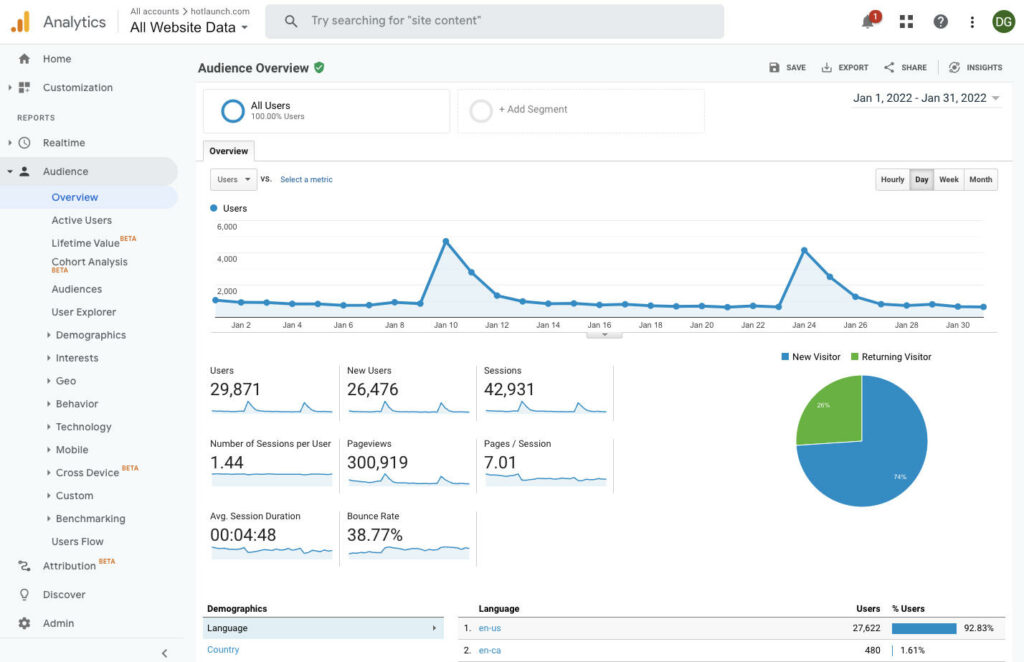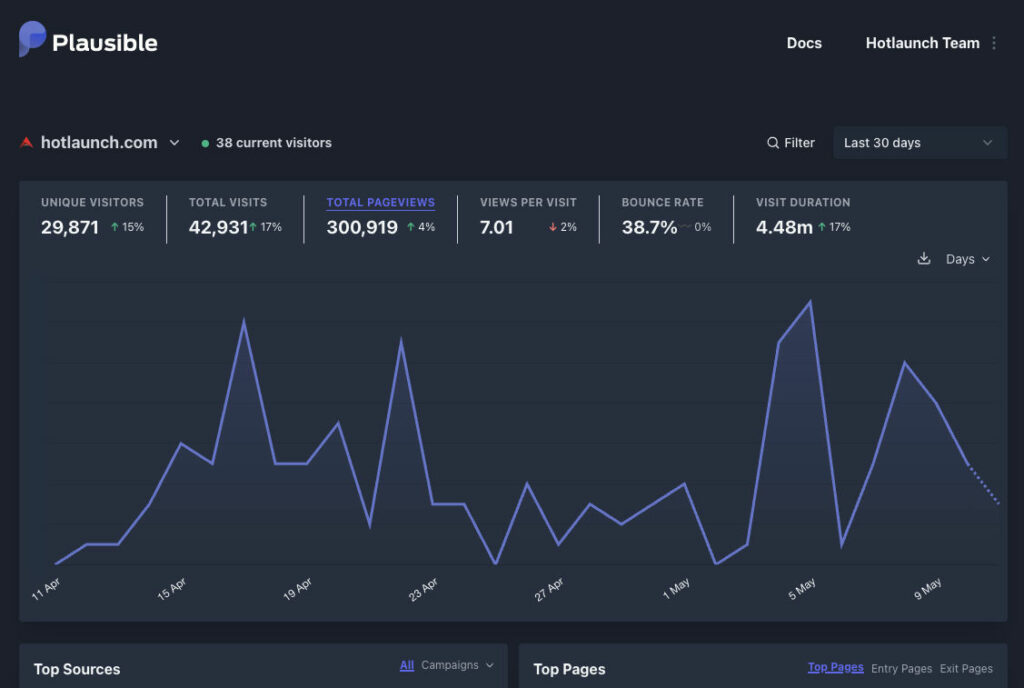Introducing a Compliant Analytics Solution
Why we’re switching to a privacy-focused solution (and you should too).
Many people don’t think about internet privacy, but it’s a crucial issue that impacts everyone while they’re online.
Courts worldwide are increasingly focused on safeguarding user data and privacy rights. Non-compliance may result in significant fines, including in the U.S.
Analytics are at the forefront in this discussion.
In this article, I’ll explain the privacy concerns related to analytics software in simple terms. I’ll also share why Hotlaunch has decided to switch to a privacy-first solution.
Understanding the importance of the situation
Do you ever question why services such as social media, maps, search and email, which are massive and intricate, are offered for free? Despite having a large user base globally, these companies choose not to charge even a small amount and make a significant profit.
Companies don’t charge for their services because they consider the data they receive from users to be more valuable than any potential revenue from charging fees. It’s the old adage “if the product is free, your data is the product”.
Many people are aware that the internet is collecting information about us, and most of us are not happy about it.
It’s possible that you’ve experienced a situation where you were chatting with a friend about a certain topic, and then you started seeing advertisements for that exact product. That’s unsettling, isn’t it?
Tech companies have been able to monitor your behavior on the internet because there are few restrictions in place. It’s unclear how extensively your home and personal devices are being monitored with the listening devices present.
I understand your concern. You’re wondering how these devices know when to activate if they’re not always listening, despite their claims that they only listen when prompted.

Europe has already taken action to protect users’ privacy, while the U.S. has been slower to do so. The General Data Protection Regulation (GDPR) laws were passed by the European Union in 2018. It regulates how companies can use, process, and store personal data.
While these laws are aimed at people in the EU, they can also be enforced outside of Europe. Simply put, it applies to individuals or organizations that collect, process or monitor information about citizens of Europe.
It can be difficult to determine if you are subject to these rules, but it’s important to do so because the penalties can be severe. That’s why in recent years you’ve seen cookie consent banners and privacy notices pop up on so many websites. Similar laws are also being considered in the U.S., and several states have already passed privacy laws.
At the Forefront: Google Analytics
The General Data Protection Regulation (GDPR) can be applicable to various types of businesses. However, Google Analytics has been one of the initial targets of violation lawsuits.
Google Analytics is widely used on the internet to track website traffic. It’s currently being used on approximately 86% of websites, which is equivalent to 28.1 million sites. Analytics can help website owners gain insights into how visitors are using their website. The information gathered can then be used to make data-driven decisions to improve website performance.

Google Analytics is a popular choice for collecting website data because it’s free and very powerful. The challenge is that Google, as an American company, may be in violation of GDPR because the U.S. does not offer the same level of protection for its citizens as Europe does.
An Austrian court ruling in January 2022 declared that Google Analytics was in violation.
This case will have a significant impact on the future of internet privacy and enforcement, as it sets a precedent for over 100 ongoing lawsuits in the court system. Other companies are also in violation, but Google Analytics is one of the first to receive a ruling.
Avoiding non-compliance
It’s not yet clear how much this will affect everyday businesses, especially those outside of Europe. However, it is evident, change is in the air, and there will be consequences.
Understating the situation, agencies like mine have two options to choose from:
- Examine each client individually, both current and future, to identify who needs to follow what regulations. Then, implement solutions based on each company’s exposure.
- Comply.
To me, the choice is simple. I feel it’s best for everyone to comply with privacy initiatives, even if it’s not mandatory, rather than constantly trying to find ways to avoid them.
My agency has already switched all of our websites to Plausible; a privacy-first, GDPR compliant analytics solution. I recommend our clients should too.
Why Plausible?
There are several analytics solutions available that are compliant. After comparing features and thoroughly testing them, Plausible came out on top.
- Plausible’s dashboard is intuitive, simple to use and displays the information that’s most important to users
- Privacy-friendly and all data collected is anonymous
- Fully compliant with GDPR, CCPA and PECR
- No need for annoying cookie banners or GDPR consent
- Easily track events, goal conversions and campaigns
- Software is lightweight, doesn’t slow down your site, and that’s good for SEO
- Easily send automatic email reports with an overview of your site’s performance

The business model for Plausible prioritizes privacy and involves selling software instead of data, unlike Google Analytics. It’s available for as little as $9 per month. That’s a small price to pay for such a good tool, to protect the privacy of your website visitors and to maintain ownership of your data. I’d say that’s a worthwhile investment for the peace of mind provided to my agency and my clients. Even better, it’s included at no charge with some of our website management plans.
The Golden Rule
Paraphrasing the golden rule; “treat others the way you want to be treated”. Following that principle, I feel it’s my responsibility to not only assist and advise my clients, but also to responsibly manage any online assets under my care.
If I’m uncomfortable with all the data being collected unnecessarily on the web, why would I do that to others?
Hotlaunch became a Data Privacy Certified Agency in 2020 and partnered with Termageddon to offer Privacy Policies and Terms of Service documents, which are important for businesses to comply with online privacy standards. We’re committed to continuing this effort. The privacy-friendly analytics platform by Plausible (plausible.io) is just one of the ways to keep that commitment.